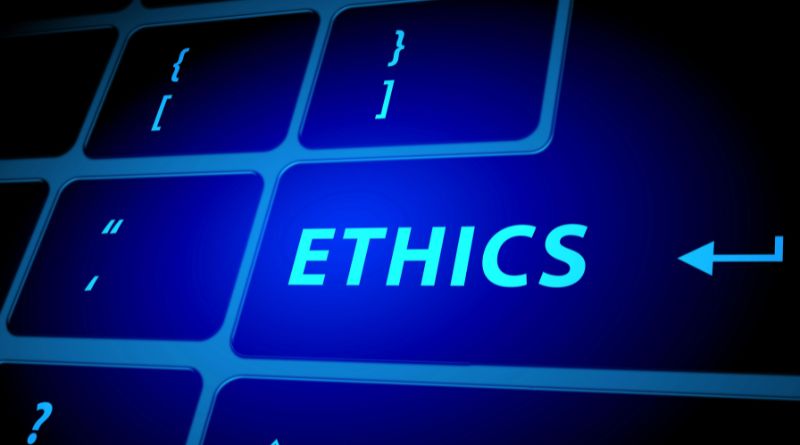Technology has undeniably transformed the world, bringing advancements in communication, healthcare, education, and every facet of daily life. But with each new innovation comes an ethical dilemma: how do we balance technological progress with moral responsibility? The ethics of technology is a complex field that explores the moral questions raised by technological development and its impact on society.
This article delves into key areas where technology and ethics intersect, highlighting the importance of mindful innovation and the need to foster a responsible approach to technology.
Table of Contents
The Dual-Edged Sword of Technology
At its core, technology is neutral—neither inherently good nor bad. It is the intent, design, and use of technology that gives it its ethical weight. While technological advancements have led to remarkable improvements in quality of life, they have also created new ethical challenges, such as privacy concerns, social inequality, and potential misuse.
For instance, artificial intelligence (AI) and machine learning have revolutionized industries from healthcare to marketing, but they also raise concerns about job displacement, data bias, and accountability for decisions made by machines. The debate surrounding technology is not just about what we can create but about what we should create.
Privacy Concerns in the Digital Age
One of the most pressing ethical issues in technology today revolves around privacy. The digital age has made it easier than ever to collect, store, and analyze personal data. From social media platforms to online shopping habits, individuals are constantly leaving digital footprints. Companies often use this data for targeted marketing, product recommendations, or even shaping political opinions.
The question of consent becomes murky when individuals are not fully aware of how their data is being used. Invasive surveillance, data breaches, and the commodification of personal information have become significant concerns in a world where privacy is often compromised for convenience. The ethical question here is: how much data should companies be allowed to collect, and should individuals have more control over their digital presence?
Artificial Intelligence and Accountability
AI is one of the most exciting yet ethically fraught developments in modern technology. AI systems can analyze massive amounts of data, learn from it, and make decisions, often with greater accuracy than humans. However, the lack of transparency in AI decision-making raises questions about accountability. Who is responsible when an AI system makes a mistake or causes harm?
Moreover, AI systems are trained on vast datasets, which can include biased information. If the data is biased, the AI’s decisions can perpetuate these biases, leading to unfair treatment in areas like hiring, criminal justice, and lending. Ensuring that AI systems are fair, transparent, and accountable is one of the biggest ethical challenges of our time.
The Ethics of Automation and Employment
As technology advances, the automation of tasks traditionally performed by humans has increased dramatically. While automation boosts efficiency and lowers costs for companies, it also poses a significant threat to employment. Jobs in sectors like manufacturing, retail, and even customer service are increasingly being replaced by machines.
The ethical dilemma here centers on the responsibility of businesses and governments to mitigate the negative impact of automation on workers. Should companies prioritize profit over people? What role should governments play in reskilling displaced workers and ensuring equitable economic opportunities in a world where automation is the norm?
Technology and Environmental Impact
Technological innovation often comes at a cost to the environment. The production of electronics, mining for rare earth metals, and the energy consumption of data centers are all contributing to environmental degradation. E-waste, the discarded electronic devices that often end up in landfills, is another growing concern. Many of these products contain hazardous materials that can harm ecosystems and human health.
Balancing the pursuit of innovation with environmental sustainability is a crucial ethical issue. Companies must take responsibility for the environmental impact of their products, from design to disposal. This includes creating more energy-efficient technologies, using sustainable materials, and developing effective recycling programs.
The Digital Divide and Social Inequality
While technology has the potential to level the playing field and provide opportunities for all, it has also contributed to widening the gap between different social groups. The digital divide—the gap between those who have access to technology and those who do not—exacerbates existing inequalities in education, healthcare, and employment.
For example, students without access to reliable internet or modern devices are at a disadvantage compared to their peers. In healthcare, telemedicine has proven to be a valuable tool, but those without the necessary technology are left behind. Addressing this digital divide is essential to ensuring that technological advancements benefit everyone, not just a privileged few.
Ethical Considerations in Biotechnology
Biotechnology, especially in fields like genetic engineering and cloning, has opened up possibilities that were once thought to belong to the realm of science fiction. While biotechnology holds immense potential for curing diseases and improving quality of life, it also raises profound ethical questions about the manipulation of life itself.
For instance, genetic editing technologies like CRISPR allow scientists to alter DNA, potentially curing genetic disorders before a child is born. But this also leads to concerns about “designer babies,” where genetic traits like intelligence or physical appearance could be altered, raising issues of fairness, consent, and the very definition of what it means to be human.
Ethics in Technological Warfare
The use of technology in warfare presents another layer of ethical complexity. Drones, autonomous weapons, and cyber warfare have transformed the battlefield, allowing for more precise and less risky operations. However, the detachment created by such technology raises questions about the human cost of war. When decisions about life and death are made remotely or by machines, it becomes harder to hold individuals accountable for the consequences.
Moreover, the development of autonomous weapons systems has sparked a debate over whether machines should be given the power to make lethal decisions without human intervention. The ethical implications of such technologies are profound, as they challenge long-standing principles of warfare and human rights.
FAQs
Q: What are the main ethical concerns with artificial intelligence (AI)?
A: The primary ethical concerns with AI include bias in decision-making, lack of transparency, and accountability. AI systems often rely on biased data, which can lead to unfair outcomes. Additionally, it’s difficult to determine who is responsible when AI makes mistakes, leading to ethical questions about accountability.
Q: How does technology impact privacy?
A: Technology, especially in the digital age, has made it easier to collect and analyze personal data. This raises ethical concerns about consent, data security, and the extent to which companies should be allowed to use personal information for commercial or political purposes.
Q: What is the digital divide?
A: The digital divide refers to the gap between those who have access to modern technology, such as the internet and devices, and those who do not. This divide exacerbates social inequalities, particularly in education, healthcare, and employment.
Q: How does technology affect the environment?
A: Technology production and use can have a significant environmental impact, including energy consumption, e-waste, and the use of hazardous materials in electronics. Ethical considerations involve creating more sustainable technologies and ensuring proper disposal of tech products.
Q: Can automation lead to job loss?
A: Yes, automation can lead to job displacement, especially in sectors like manufacturing, retail, and customer service. The ethical issue revolves around how to balance the benefits of automation with the need to protect workers’ livelihoods.
Q: What role do governments play in addressing the ethical issues of technology?
A: Governments play a crucial role in regulating technology, ensuring privacy protections, fostering equitable access to technology, and mitigating the negative impacts of automation and environmental damage caused by tech innovation.
Conclusion
The ethics of technology is not a fixed set of rules but a continually evolving conversation about the role of innovation in society. As technology continues to advance at an unprecedented pace, it is crucial that we remain mindful of the ethical implications of our creations. Whether it’s protecting privacy, ensuring accountability in AI, or addressing environmental sustainability, ethical considerations must be at the forefront of technological development.
Technology has the power to transform the world for the better, but only if we approach it with a sense of responsibility, fairness, and respect for the rights of all individuals. The ethical dilemmas posed by technology require thoughtful discussion, regulation, and a commitment to ensuring that innovation serves humanity as a whole.



